Increased maternity leave is not necessarily good for women
Speaking at the National Assembly discussion on the afternoon of November 10 about the draft Law on Population, delegate Nguyen Thi Viet Nga ( Hai Phong delegation) said that the development and promulgation of this Law is extremely necessary, because current policies have revealed many limitations and are no longer suitable for the current situation of Vietnam's population when the birth rate is decreasing, aging is happening rapidly and the gender imbalance at birth is still alarming.
She emphasized that strong changes in socio -economic conditions, along with the mentality of late marriage, having few children, or even not wanting to have children, are creating new challenges, forcing population policy to shift to improving population quality and adapting to aging.
One of the points that delegates are interested in is the regulation that increases the maternity leave for the birth of a second child by 1 month in the new draft. According to Ms. Nga, this is a policy that will receive the approval of many people who have been, are and will be mothers. However, she warned that this regulation needs to be carefully considered.
"When extending maternity leave for female workers, businesses will tend to hesitate to recruit or assign female workers to important positions due to concerns about work interruptions and additional costs," Ms. Nga worried.
According to her, this regulation could unintentionally become a barrier for female workers and increase the risk of gender discrimination in recruiting and employing female workers.

Delegate Nguyen Thi Viet Nga, Hai Phong delegation (Photo: Media QH).
Besides, according to the delegate, for the current group of women who tend to value their careers, especially young and high-quality workers, the policy of increasing maternity leave can create a fear of having a second child.
"Many people will worry that being absent for a longer period of time will affect their promotion opportunities, work performance evaluations or positions in their agencies or businesses," she analyzed.
Therefore, delegates proposed open and flexible regulations, with distinction between occupational groups, industries, and regions before application, and must have parallel support mechanisms for businesses, ensuring equal promotion opportunities for women after maternity leave.
More importantly, according to the delegate, the policy needs to shift from a mindset that focuses solely on women to one that shares responsibility with the husband. The delegate proposed that it should be regulated that either the husband or wife can take long leave to care for the child, even if the total leave time for both spouses should not exceed 7 or 8 months, depending on the family's choice of allocation" - a way to ensure child care, "reduce pressure on women" and promote gender equality in child care.
"Support for childbirth must be fair, without limits before or after the age of 35"
Giving comments on the draft Population Law during the discussion session, delegate To Van Tam ( Quang Ngai ) was concerned about maintaining the replacement fertility rate.
Citing the draft law, the delegate said that there are three groups of people who are eligible for financial support: ethnic minority women; women who give birth to two children before the age of 35; and women in localities with low replacement fertility. The delegate suggested clarifying the regulations for the second group - women who give birth to two children before the age of 35.
"This regulation may be intended to encourage people of childbearing age to ensure human resources for the future, but if viewed from the perspective of rationality and fairness, it is not appropriate and problematic. That is, it creates discrimination against those who have two children after the age of 35," Mr. Tam stated his opinion.
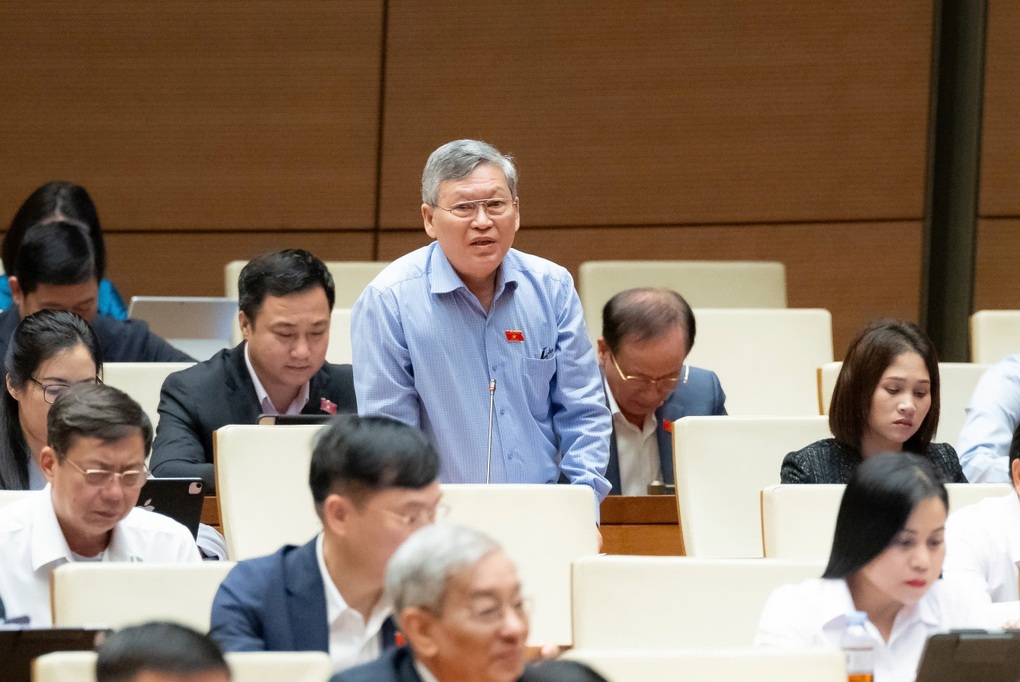
Delegate To Van Tam speaks during the discussion on the Population Law (Photo: Media QH).
In fact, he said that there are women who may want to give birth before the age of 35, but due to many economic conditions, career, work pressure or other objective factors, they cannot give birth before the age of 35. But then, when they give birth to two children after the age of 35, they are not supported, the delegate said that this is unfair and lacks comprehensiveness. Therefore, there needs to be more uniform regulations in the direction of supporting women who give birth to two children at all ages.
In addition, according to the delegate of Quang Ngai province, there should be a policy to protect the health of mothers and children, and support services to ensure equal rights in labor through a reasonable population and employment policy, not just simply regulating giving birth before or after 35 years old.
Regarding the responsibility in maintaining replacement fertility, he said that in addition to the State's responsibility, regulations should be open in the direction of encouraging economic organizations to support and create conditions for implementing replacement fertility maintenance measures for employees working at their organizations.
"In reality, there are many times when women raising young children do not dare to take time off even though they can, because of income pressure," Mr. Tam cited.
Source: https://dantri.com.vn/lao-dong-viec-lam/tang-nghi-thai-san-voi-phu-nu-de-khien-doanh-nghiep-de-ngan-chi-em-20251110153845306.htm










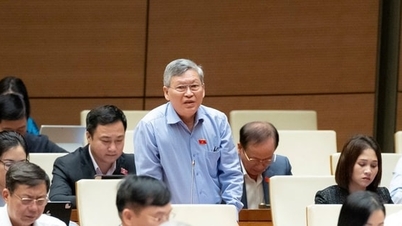



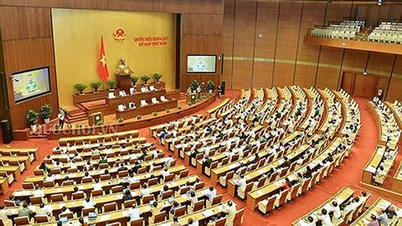


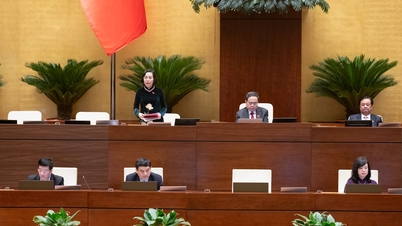





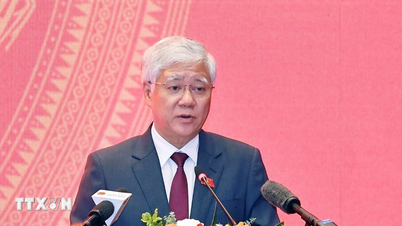


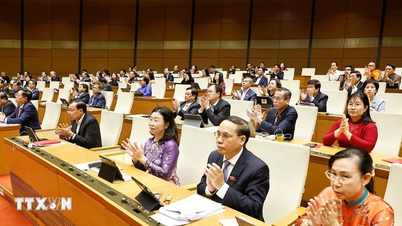






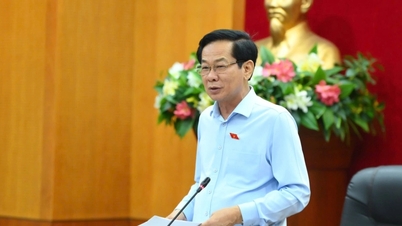




























































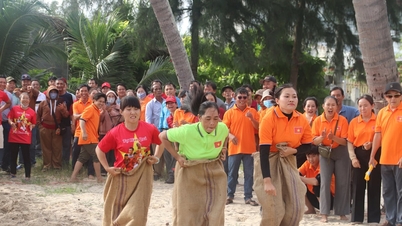




![Dong Nai OCOP transition: [Article 3] Linking tourism with OCOP product consumption](https://vphoto.vietnam.vn/thumb/402x226/vietnam/resource/IMAGE/2025/11/10/1762739199309_1324-2740-7_n-162543_981.jpeg)











Comment (0)